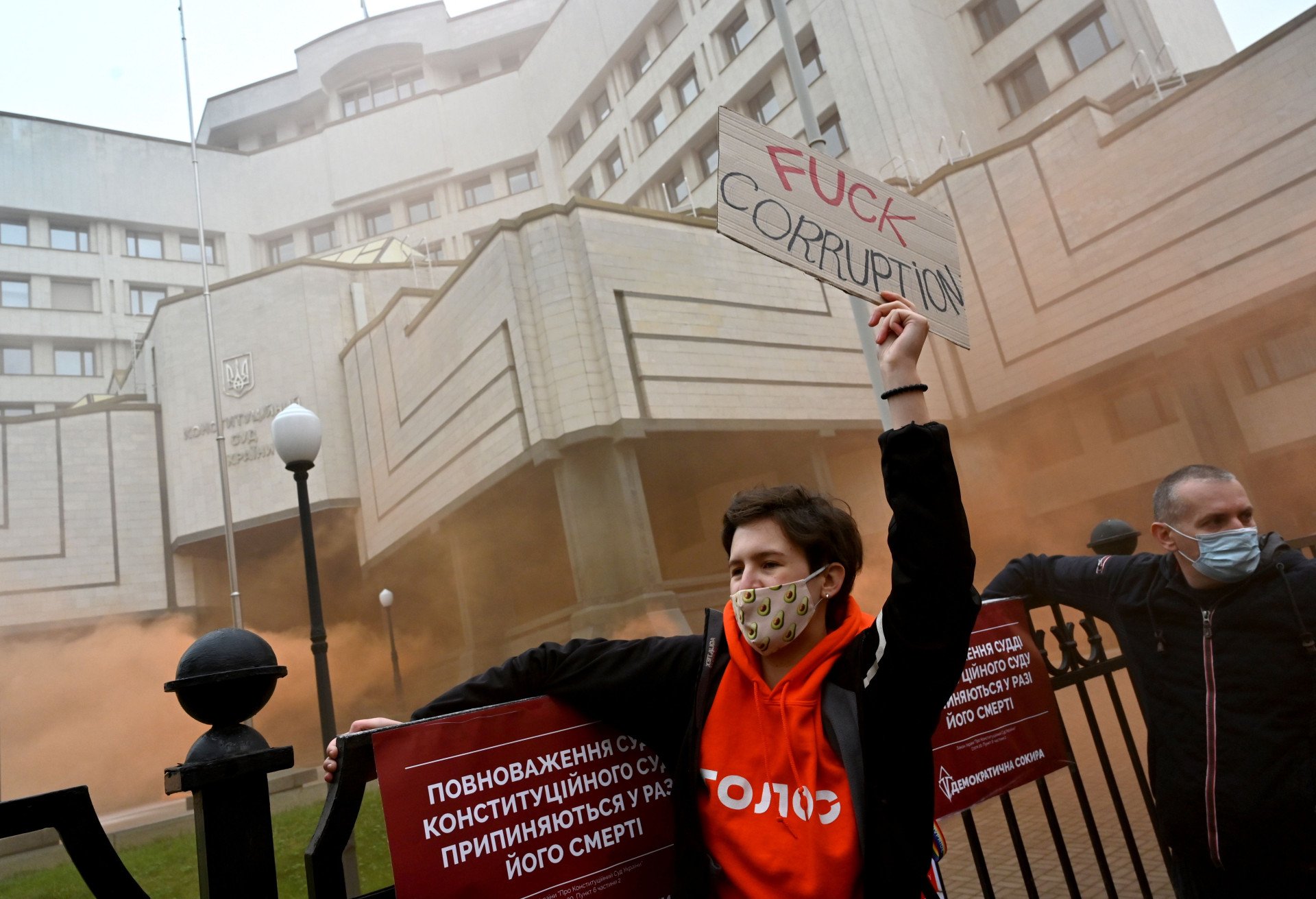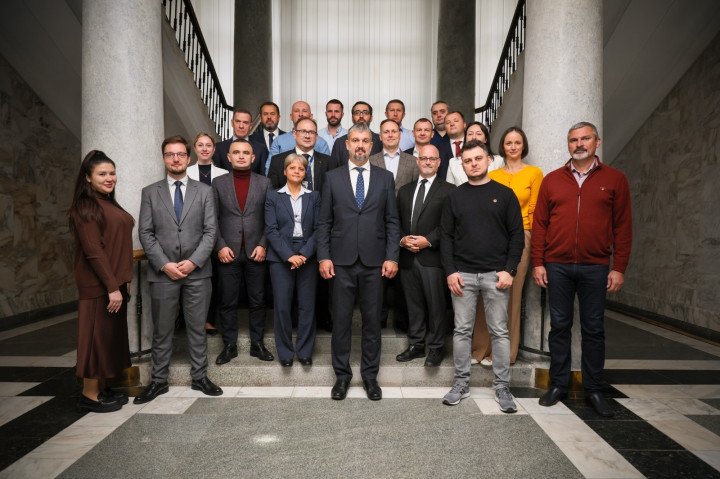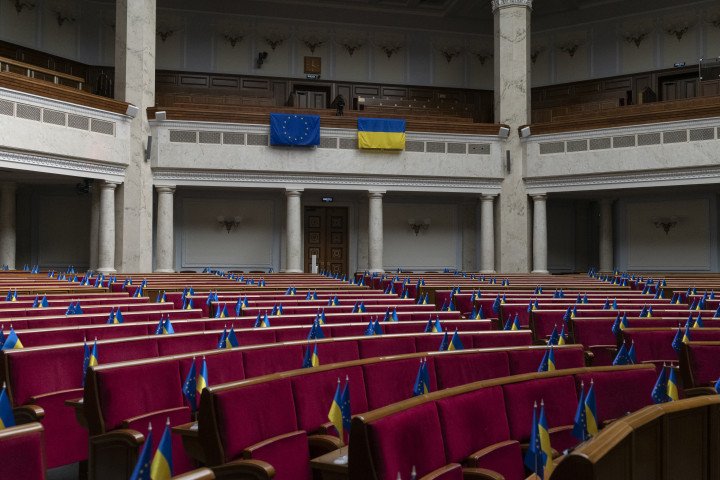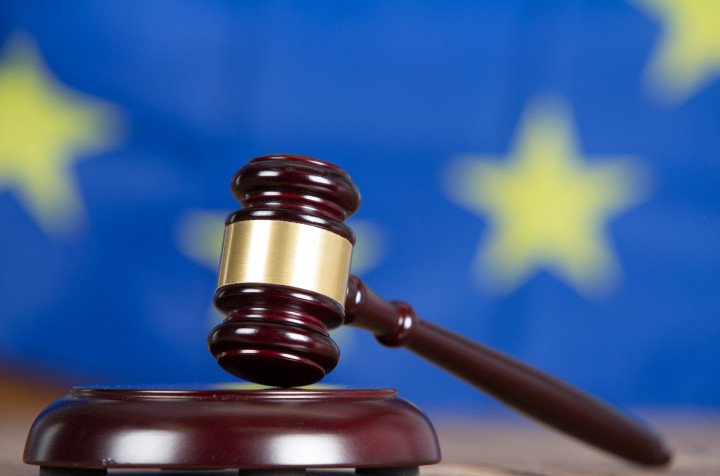- Category
- Life in Ukraine
Ukrainian Anti-Corruption Reform: How is Ukraine Fighting Corruption?

Ukraine’s journey toward European integration is built on sweeping reforms, with anti-corruption measures playing a central role. These reforms were driven by public demand following the 2014 Revolution of Dignity, which aimed to reshape Ukraine’s governance and align it with European Union standards. This push led to the development of a robust anti-corruption strategy, transforming the country’s legal framework and tightening government oversight.
Since Russia’s full-scale invasion, Ukraine has been fighting a war on two fronts—against foreign aggression and internal corruption. Despite the immense challenges posed by an ongoing war, Ukraine has made significant strides in maintaining transparency and accountability. The country, now a recipient of billions in foreign aid, faces heightened scrutiny from the global community, particularly donor nations concerned with how well Ukraine manages its financial support.
Even under these extreme pressures, Ukraine’s key law enforcement agencies, such as the National Anti-Corruption Bureau of Ukraine (NABU) and the Special Anti-Corruption Prosecutor’s Office (SAPO), have continued to function effectively. These agencies have been tasked with upholding anti-corruption efforts while ensuring that aid and resources are used responsibly. As one Western diplomat noted, "There are two wars: against Russia and against corruption, and we equally support Ukraine in both.

Revolution of Dignity sparks corruption crackdown
After a period of rampant corruption under former president Viktor Yanukovych, who is now in exile in Russia, the Revolution of Dignity, also known as Euromaidan, marked a turning point in Ukraine’s history. Over three months of struggle culminated in Ukrainian peoples’ demands being met: sweeping changes to power, which ultimately brought major anti-corruption reforms aimed at reshaping the nation’s institutions.
These reforms sought to align Ukraine with European Union standards, reflecting the aspirations of a majority of Ukrainians. During this transitional phase, Ukraine began moving away from its Soviet past and toward a more democratic, European future. Key institutions, established with the help of international partners and civil society groups, were created to lead the fight against corruption, including:
National Anti-Corruption Bureau of Ukraine (NABU): Established in 2015, NABU became an independent body investigating high-level corruption, particularly targeting officials, parliament members, and judges.
Specialized Anti-Corruption Prosecutor’s Office (SAPO): Created alongside NABU, SAPO prosecutes cases brought by NABU, focusing on top-level corruption.
High Anti-Corruption Court (HACC): Established to ensure a dedicated and impartial court adjudicates cases investigated by NABU and prosecuted by SAPO. HACC officially began operations in 2019.
National Agency on Corruption Prevention (NAPC): Formed in 2015, NAPC is responsible for monitoring public officials' financial declarations, managing conflicts of interest, and preventing corruption through policy oversight and transparency measures.

Transparency: a new standard for state-owned companies and officials
As Ukraine embarked on sweeping reforms, transparency became a cornerstone of its anti-corruption efforts. One of the standout initiatives is Prozorro, a government procurement platform whose name fittingly translates to "transparent." Prozorro makes all government transactions publicly accessible, enabling anyone—whether a citizen or potential bidder—to view the entire procurement process. From tenders and bids to contract awards and complaints, every stage is visible, significantly reducing opportunities for corruption.
Prozorro is mandatory for all state-owned enterprises and government agencies, both at the local and national levels, for purchases exceeding a specified threshold. This open-access approach ensures that public spending is subject to scrutiny, fostering competition and fairness in government contracts.
Another key element of Western-style reforms is mandatory asset declarations for public officials. A standard practice in the United States and Europe, these declarations allow for public scrutiny of officials’ finances, aiming to eliminate hidden corruption. In Ukraine, all public officials—including government employees, members of parliament, judges, and law enforcement officers—are legally required to submit annual asset declarations.
Officials must disclose:
Income from all sources (salary, investments, gifts, etc.)
Movable and immovable property (e.g., homes, cars)
Cash and bank savings, including foreign assets
Business shares, corporate rights, and securities
Valuable possessions, such as jewelry, art, and antiques, if they exceed a set value
Liabilities, including loans and debts
Significant expenses, such as purchasing high-value items
What makes Ukraine’s asset declaration system unique is that it operates entirely online and is fully accessible to the public. Through the Unified State Register of Declarations, any citizen, journalist, or civil society organization can review these declarations to verify the accuracy of the reported assets. This transparency acts as a powerful deterrent against corruption, ensuring accountability at all levels of government.
In 2023, The World Bank announced that it too will be using the Prozorro system for its projects in Ukraine stating that “the position of the World Bank is that starting from 2023, Prozorro should be used in all reconstruction projects financed by the Bank.”

NABU: the independent watchdog
The National Anti-Corruption Bureau of Ukraine (NABU), born from the people’s demand for change after the 2014 Revolution of Dignity, has become a major player in Ukraine's fight against corruption. Established in 2015, NABU is a key part of broader reforms aimed at cleaning up the government, boosting transparency, and tackling corruption head-on.
NABU isn’t afraid to take on the toughest cases—whether it’s high-ranking officials, parliament members, or judges, they dig deep to uncover the truth. And their work doesn’t just stop at Ukraine’s borders. NABU regularly teams up with international organizations and foreign governments to take on cross-border corruption, making sure no one slips through the cracks, no matter how far the money trail leads.
As Christopher Smith, Deputy Chief of Mission at the US Embassy in Ukraine, put it: “There are two wars: against Russia and against corruption, and we equally support Ukraine in both.”
What sets NABU apart is its independence. Unlike other law enforcement agencies, NABU operates free from government control, giving them the freedom to investigate even the most powerful figures without interference. When they’ve done their part, they hand over the evidence to the Special Anti-Corruption Prosecutor’s Office (SAPO), which takes it from there and brings the cases to court.

Fighting corruption in Ukraine with NAPC, SAPO, and HACC
Impartiality is a cornerstone of Ukraine’s investigative and prosecutorial bodies. Both agencies operate under strict guidelines to remain independent from government officials and agencies, ensuring investigations and prosecutions are conducted with full integrity and without external interference.
In addition to NABU, Ukraine has implemented a robust anti-corruption framework that includes:
NAPC (National Agency on Corruption Prevention): This agency monitors public officials’ financial declarations and works to prevent conflicts of interest.
SAPO (Specialized Anti-Corruption Prosecutor’s Office): Working alongside NABU, SAPO is responsible for prosecuting corruption cases in court.
HACC (High Anti-Corruption Court): HACC plays a key role by providing a dedicated judicial process to ensure that high-level corruption cases are adjudicated fairly.

The abolition of parliamentary immunity
A crucial and controversial reform was the abolition of parliamentary immunity, which had previously shielded members of parliament from prosecution. This move signaled Ukraine’s commitment to ensuring no public official, regardless of rank, was beyond the reach of the law.
Since the abolition of parliamentary immunity in Ukraine, which officially took effect on January 1, 2020, dozens of MPs have been subject to criminal investigations and legal actions.

No untouchables in high-profile corruption cases
Despite significant reforms, corruption remains a visible challenge in Ukraine. However, the high-profile cases seen today show a clear shift toward transparency, where corruption is no longer concealed but confronted head-on. Among the most notable examples are the 2023 arrest of Vsevolod Kniaziev, the head of the Supreme Court, for allegedly accepting a $2.7 million bribe, and the 2024 arrest of Deputy Energy Minister Oleksandr Kheilo, charged with soliciting bribes tied to mining operations.
These cases underscore Ukraine's commitment to holding even the most powerful figures accountable, aiming to restore public trust in its institutions. Positioned between Western liberal democracies and the lingering shadow of Soviet-era kleptocracy, Ukraine made its intentions clear during the Revolution of Dignity in 2014. Now, on the verge of European Union membership, these reforms are critical to ensuring the country’s future as a transparent and democratic nation, rooted in accountability.



-6ead6a9dd508115a5d69759e48e3cad1.jpg)
-29a1a43aba23f9bb779a1ac8b98d2121.jpeg)
-7f50738271c122a9b5e663cb80703dd6.jpg)


-554f0711f15a880af68b2550a739eee4.jpg)